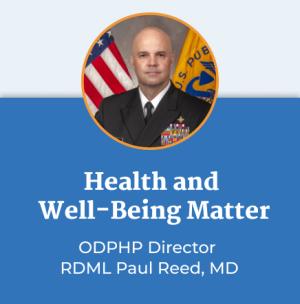Healthy Aging
Promoting health and preventing disease in older Americans is key to the health of the nation. Across ODPHP initiatives, we support efforts to help older adults live longer and stay healthy. Read about educational opportunities, ways to collaborate across sectors, and resources to support your healthy aging work.

